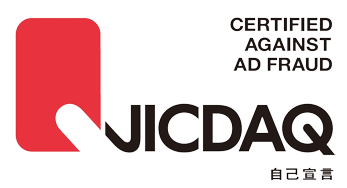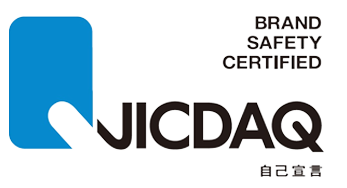Introduction to Keyword Selection in Search Marketing

In the same vein, you're far less likely to maximize the full potential of search engine optimization if you're unfamiliar with such basic SEO tactics.
This guide is for beginners and experienced SEO practitioners who run SEO campaigns — or are about to dive into search marketing — and are interested in learning how to implement the correct keyword selection or keyword research strategy to get the most out of it. We'll focus on keyword selection: its importance, procedure, recommended tools, and more. Let's get started!
The Importance of Keyword Research in SEO

How search engines work
A robot, called a "crawler", collects data from web pages all over the internet and stores it. When a user enters a keyword into a search engine, the crawler analyzes the data and returns results from websites that are relevant to what the user is looking for.
Marketers who optimize their keywords for SEO are simply making it easier for crawlers to match the content of their site to the right prospects. And search engines like Google, in looking up websites to display to a user, determine which the user will find the most helpful — usually those with the highest user retention. In other words, the process is highly personalized.
Enter keyword research
Delivering helpful information to your company's prospects to increase brand visibility is a straightforward decision. In creating the most effective content, however, marketers need to see things from the perspective of the user.
Choosing the right keywords involves more than delivering your content to the right audience. You should strive to avoid overly competitive keywords and aim to build a strong brand identity. Companies that rank higher on search engine results don’t merely stuff keywords into their content, but instead, use an effective keyword research process to select what applies best to their target audience.
Steps To Identifying Keywords

1. Decide on a primary keyword
Select a word that is closely related to your business’s product, has a large search volume, and make it the primary keyword in creating your SEO content around it. This primary keyword can be placed in the title, the meta description, or in other content published on your website.
2. Integrate secondary keywords
A secondary keyword is a related and more specific term to the primary keyword in your content. Secondary keywords enhance content relevance, cater to various user queries, and help optimize webpages for search engines. They are often longer phrases, address different facets of the topic, and reduce keyword stuffing. Integrating them naturally into your content expands its depth and attracts more targeted traffic.
3. Use keyword research tools
Next, using keyword research tools is an essential step in any effective search engine optimization strategy. These SEO tools help you identify relevant keyword ideas and phrases that people are searching for online, allowing you to optimize your web page content to better align with user intent.
Conducting keyword research tools can also provide valuable insights into your competitors’ strategies and help you improve your website’s search rankings.
4. Listen to your customers
It doesn’t hurt to listen to the opinions of your customers, both current and prospective. Websites like answerthepublic.com will help you discover questions the public is asking around keywords you are interested in.
5. Document the process
Organize your keyword candidates by category. This way, you can compare the strengths and weaknesses of each, preventing you from overlooking potentially valuable ones.
6. Place priorities
The search volume and competitiveness of each keyword will help you better determine which keywords you want to focus on. It's not just about search volume though. Instead, it's about if the content you're creating meets the needs of your users and showcases the strengths of your product.
7. Aim for long-tail keywords
SEO keywords are divided into three types: seed, medium, and long-tail keywords.
Keyword types:
- Seed Keyword Single keywords with high search volume. Competition is fierce, but you get a lot of traffic once you are at the top of the search engine result pages (SERP).
- Medium-Tail Keyword Two-to-three-word keywords containing a moderate search volume. The competition for these is modest.
- Long-Tail Keyword A mixture of multiple keywords. The search volume is small, and the competition is low.
The type of keyword you choose to target has a direct impact on keyword difficulty. Seed keywords are highly competitive keywords and are harder to rank for, while long-tail keywords are generally less competitive. When planning your SEO strategy, it's essential to consider your website's authority, the specific needs of your target audience, and the competition in your niche to determine which types of keywords to focus on. A well-balanced keyword strategy may include a mix of different keyword types to maximize your SEO efforts.
Of the three above, it makes the most sense to target long-tail keywords as they are also considered low-competition keywords. Their search volume might be small, but the specificity it brings helps reach a focused niche audience.
Learn more: The Impact of Invalid Traffic on SEO and Search Engine Rankings
Recommended Keyword Research Tools
1. Google keyword planner

Google Keyword Planner was meant for Google Ads advertisers to build keyword lists and identify estimate search volumes. Google Keyword Planner can even help you discover new keywords, make flexible Search Engine Marketing or “SEM” plans, and even get bid estimates in case you decide to run ads later.
2. Ubersuggest

Ubersuggest is a keyword research tool that delivers highly accurate diagnoses, search volumes, and SEO difficulty level of keywords.
3. Google Trends

Google Trends is a free tool that you can use to see how much a keyword’s search volume has increased over a specific period. This allows you to identify trends within a particular market. Also, remember to recognize potential keyword candidates, i.e., those whose search volume is increasing.
4. Google Search Console

Google Search Console is a tool built for analyzing the sort of keyword that is generating sufficient traffic inflow to your site. Data from this tool can be used to better optimize your content, and most importantly, determine whether your website is receiving traffic from your target keywords.
5. Ahrefs

Ahrefs, a tool with high indexation on the web, is a must-have for optimizing your SEO campaigns. It comes with a lot of resources, each of which can be accessed by simply entering your URL or keyword phrase.
6. Semrush

Semrush is a keyword research tool used by 7 million marketers around the world. It offers detailed reports on SEO, keyword research, and other services.
Learn more: PPC Vs. SEO: An Analysis of Two Powerful Acquisition Models
Conclusion
It is imperative to use SEO tactics when acquiring web users rather than solely focusing on running paid advertisements. By creating content prospective users are interested in and optimizing that content for search engines, you will be able to rank higher in search results and see traffic coming to your website. Unlike paid ads, organic content becomes your asset, helping to establish authority in your industry.
No matter what tools you end up using for your keyword research and selection, remember to thoroughly test them to make sure they can bring you the results you need.
Spider AF takes away the struggle of manually detecting and eliminating ad fraud through advanced automation and helps advertisers drive better ad performance. Get started with our 14-day free trial and see for yourself the big difference when your ads are clean of ad fraud.
Frequently Asked Questions About Keyword Selection
Why is keyword research essential for SEO campaigns?
Keyword research is fundamental to SEO campaigns as it helps you choose keywords that are highly relevant to your content and target audience's search intent. By using keyword tools, you can uncover the best keywords to optimize your webpages for Google search results and generate keywords that attract organic traffic.
What steps should I follow to prioritize keywords effectively?
To prioritize keywords for SEO, follow these steps:
- Begin by selecting a primary keyword closely related to your business.
- Integrate secondary keywords to enhance content relevance and cater to various user queries.
- Utilize keyword research tools to identify relevant keywords with high search volumes.
- Listen to your customers' opinions and questions related to your target keywords.
- Document the keyword selection process to avoid missing potentially valuable ones.
- Place priorities based on factors like search volume and competitiveness to prioritize keywords effectively.
What types of SEO keywords should I target in my content?
You should consider targeting different types of SEO keywords, including:
- Seed Keywords: These are single keywords with high search volumes, but they can be highly competitive.
- Medium-Tail Keywords: These consist of two-to-three-word phrases with moderate search volumes and competition.
- Long-Tail Keywords: These are multi-word phrases with lower search volumes and less competition. Long tail keywords tend to be more specific and can attract a niche audience.
Why is it important to balance paid advertising with organic content for business value?
Balancing paid advertising with organic content is crucial for business value. While paid ads can provide immediate results, organic content, optimized for relevant keywords, establishes long-term authority in your industry. Unlike paid ads, organic content remains an asset that can improve your website URL ranking over time, leading to sustained success.
How can I ensure that my selected keywords effectively improve my website's Google rank?
To ensure that your selected keywords improve your Google rank, regularly monitor their performance through tools like Google Analytics. Analyze user behavior, track keyword performance, and make necessary adjustments to your content and strategy. Consistent testing and optimization are key to ranking pages higher in search results.
How do I choose the right keywords that align with user intent and maximize SEO results?
To choose the right keywords, consider your website's authority, the specific needs of your target audience, and the competition in your niche. Prioritize keywords that not only have high search volumes but also meet the needs of your users and highlight the strengths of your product or service.
What is the impact of invalid traffic on SEO and search engine rankings?
Invalid traffic can negatively impact your SEO and search engine rankings. It's crucial to use effective keyword research to avoid targeting wrong keywords that may attract irrelevant or fraudulent traffic. By selecting low difficulty keywords and optimizing for user intent, you can minimize the impact of invalid traffic on your SEO efforts.
How can I evaluate the suitability of keywords for my SEO strategy?
To evaluate the suitability of keywords, consider factors like keyword difficulty scores and monthly search volume. Keyword difficulty scores indicate the competitiveness of a keyword, while monthly search volume helps gauge its popularity. The right keywords for SEO strike a balance between relevance and competition.
What are some of the best keyword research tools to determine keyword difficulty scores?
To determine keyword difficulty scores, you can use tools like Ahrefs, Semrush, or Moz. These tools provide insights into the competitiveness of specific keywords, helping you identify the best keyword phrases to target in your content.
How do I select the specific keywords that will drive the most traffic to my blog post?
Selecting specific keywords involves researching keywords that align with your blog post's topic. Use keyword research tools to identify high-search-volume phrases and consider their ranking difficulty. Choose keywords that strike a balance between relevance to your content and your ability to rank for them.
Can you explain the significance of trending keywords in Google Ad campaigns?
Trending keywords are search phrases that are currently experiencing a surge in popularity. In Google Ad campaigns, targeting these keywords can be beneficial as they reflect what customers search for in real-time. Incorporating trending keywords can boost the performance of your ad campaigns and attract more relevant traffic.
How can I ensure that all your keywords are optimized for my website's SEO?
To ensure that all your keywords are optimized, conduct thorough research on each keyword's search intent and competition. Create content that caters to these keywords and use an effective SEO tool to monitor their performance and make necessary adjustments.
What is the role of informational keywords in a content marketing strategy?
Informational keywords play a vital role in content marketing by targeting users seeking information or answers. Including informational keywords in your content can help establish your website as a valuable resource. These keywords may not have high commercial intent but can attract users at the top of the sales funnel.
How do I strike a balance between choosing keywords that have high search volume and those with low competition?
Striking a balance between choosing keywords with high search volume and low competition involves thorough research and analysis. Utilize keyword research tools to identify keywords with moderate competition and a reasonable monthly search volume. These keywords offer the potential to attract significant traffic without facing extreme competition.
What factors contribute to a keyword's popularity and how can I leverage it in my SEO strategy?
A keyword's popularity is influenced by factors such as search volume, current trends, and user behavior. To leverage it in your SEO strategy, stay updated on trending keywords and incorporate them into your content. Additionally, focus on creating high-quality, informative content that resonates with what customers search for.






















